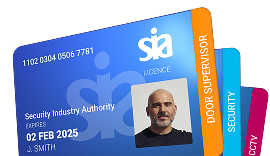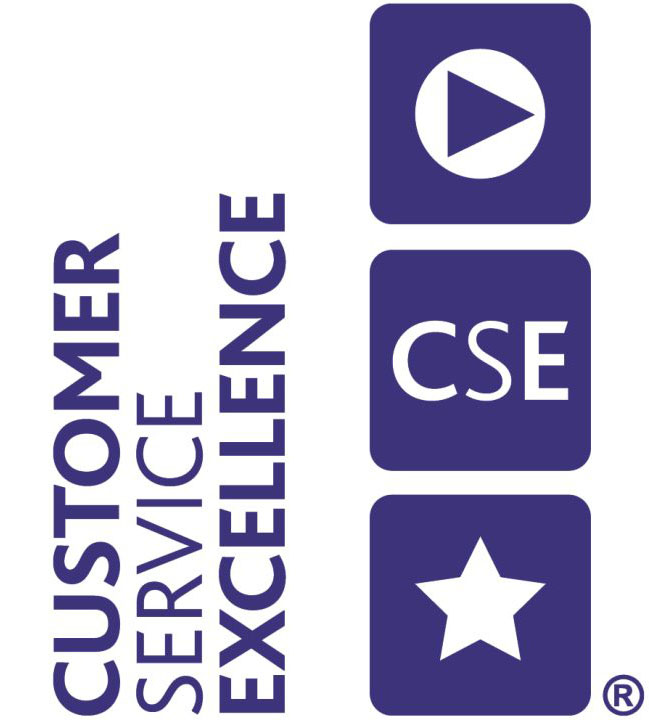
Unlimited exam retakes till you Pass

Get your exam results the same day

Full refund if you don't pass. Terms apply

95% pass rate

Try a mock test now
Test your knowledge or view the kind of questions asked in the real exam.
Try Mock Exam
Looking to train your staff?
Open a business account for group bookings, discounts and your staff hiring needs.
Open Business Account
Unlimited exam retakes till you Pass

Get your exam results the same day

Full refund if you don't pass. Terms apply

95% pass rate
Explore SIA training courses
Check what our customers says

 Trustpilot
Trustpilot
The package is designed for success
“The package is designed for success. In my door supervisor course and CCTV Operator course, I met an amazing set of instructors who use field and class experiences to build your courage and bring you excellent performance”

Highly recommended
“Highly recommended. I did the DS and CCTV courses within two weeks of each other. Both the tutors were engaging and very experienced and knowledgeable in their field. Despite both courses being relatively short, I feel they pack in a lot of material. There are also lots of practical activities that help prepare you for front line security work. Once again, I high recommend training with Get Licensed!”

100% recommended to start your Security Career
“If your looking for a licence to start a career in security or you want to renew your licence Get Licensed is the place to go, with its easy and stress-free way to apply as well as regular updates so you know what's happening with your application you know you can trust them to handle your application, they also have certified tutors who are amazing at what they do I would like to thanks to Tanya, Alan and Paul for their experience, professionalism and friendliness as I passed 1st time when I did the security guard and CCTV course. Would recommend them 100%”

Good Experience
“Registration on the Guard pass app was very easy and straightforward. Booking for training and exam was seamless. My exam trainer is a professional, he is learned and understood the course very well. It made my understanding very fast. The customer care team too are very responsive, they are also available to help anytime you have a concern.”

Really good course, great trainer
“Really good course and fantastically delivered by Shaun in Durham. I've been in the licensed trade for three decades and have learned a ridiculous amount this week !! The content was engaging throughout and kept relevant with Shaun's vast experience and real-life scenarios. Top level training, thank you.”

Great experience
“Very satisfied with the course of Door Supervisor. Ben is a very good trainer and an engaging teacher. Sham was also a good invigilator. Highly recommended”

SIA Training recommended
“It was efficient and interesting. Rob Worthington was a good professional trainer and didn’t leave any one behind. Amy was also great. Anita assisting too. 👍👍👍”

Quality driven.
“Ben Mccarthy is an efficient, quality driven, and hardworking lead trainer for the door supervision course. He made the topics easy to understand and digest. I appreciate his patience and attention to detail when teaching the course.”

I have been working in security for 30…
“I have been working in security for 30 years starting with 10 years as a full time door supervisor and then 20 years in house NHS security officer in a busy city centre hospital with a war zone called A&E Since leaving I needed to get my SIA . This course is really good and it’s far from an attend course you need to apply yourself and it will give you the grounding to be a first class operative to start a career and progress in security. Great trainer in Dave Watts a first class instructor and man. This course is first class and Get Licensed make booking, learning a great experience”

A Great Experience & Course
“Had a great experience with my Door Supervisors course. Excellent communication from start to finish. The instructor Simon Willoughby was awesome too. Very knowledgeable, engaging, and humorous. He got us through the very long days and made them feel not so long. A great guy and a great course”

Get Licensed is the best
“Get Licensed is indeed, the best place to take your security training. I just completed my Door Supervisor Training with them and was trained by Rob Worthington. Rob is the best trainer I have ever seen. You know why, its because he really trains from experience. He treated everyone fairly and makes the training very interesting, practical and experiential. I sincerely entreat everyone that seeks to take any security training course to do that with Get Licensed. You would enjoy it and learn a lot.”

I enjoyed my course so well and my…
“I enjoyed my course so well and my supervisor was a great teacher and person. He teaches so well his explanation is so clear. Am shouting out to Simon Albutt.”

Clear and Concise
“The trainer Amy was really patient, helpful and informative. All lessons were delivered with clarity along with a very professional attitude. Sering was also excellent. He conveyed information in a friendly helpful manner and made the class feel at ease. Good staff are hard to find and both are assets to the Industry.”
Have a question? We have answers
The course takes three days. On completion, you will have learned the key procedures for this role, including legal information and an overview of the security industry.
Due to this job involving cash and valuables, you will need to pass a criminal background check. It doesn't have to be a perfect record, but you are unlikely to pass the DBS check if you have had offences for dishonesty, fraud or theft. Remember that the £190 will not be refunded if you fail the check before applying.
To work as a CVIT operative, you need to have a CVIT licence. The CVIT course trains you in specific skills to cover this role. A door supervisor course equips you with different skills. You can hold both licences together, and if you currently have another SIA licence, whether it be as a security guard, door supervisor or CCTV operative, you will get a 50% discount on the £190 CVIT licence fee.
According to the SIA website, it takes 25 working days to process a licence application. In some cases, this can take up to 6 weeks due to additional security checks.
The SIA Cash and Valuables in Transit (CVIT) Licence means that you will be able to get higher-paid security work where the transfer of cash and valuables are transferred. Often this might be large stores, banks, museums or exhibitions.
It's illegal to work in the security industry without an SIA licence. Working in this specialised area of security means that large sums of cash and valuables are at stake. Due to insurance purposes, employers will always check you you have the necessary CVIT SIA licence.
You will need to renew your licence after three years. The good news, however, is no refresher training is required.
It will cost £190 to renew your SIA licence.
Don't let your licence expire. You can start the renewal process from four months before it expires. Don't worry; you won't waste money; your new licence will begin from the date your old licence expires.









































